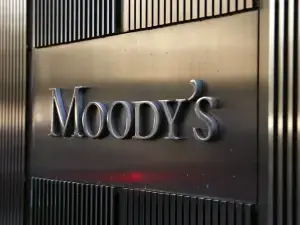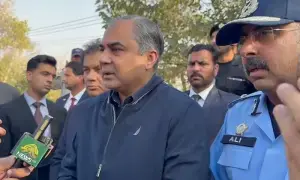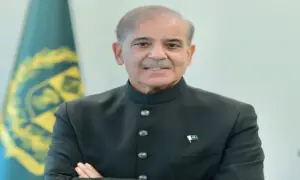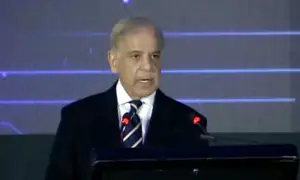Annual inflation slows, but monthly rate jump keeps pressure on govt
2 min readPakistan's annual consumer inflation eased slightly in February but a rise in prices from a month earlier on higher food and energy costs adds to the growing political pressure facing Prime Minister Imran Khan.
The consumer price index (CPI) in February rose 12.2% on year, statistics bureau data showed on Tuesday, easing slightly from the previous month's two-year high of 13%.
On a monthly basis, the inflation rate jumped 1.2% in February, accelerating from a 0.4% rise the previous month.
Prices of food and non-food items stayed on an upward trajectory though others such as eggs, potatoes, onions and sugar registered a slight decrease, the bureau said.
Surging food and energy prices have put Khan under increasing pressure, especially from his middle-class support base.
Khan announced a cut in petrol and electricity prices on Monday despite a steep rise in the global oil market, pledging to freeze the new rates until the next budget in June.
The prime minister also announced new incentives on Tuesday for export-oriented sectors and expatriate Pakistanis interested in investing back home.
"The government will give direct amnesty to the exports-oriented industries," he said, adding that overseas Pakistanis will have blanket tax amnesty if they wanted to invest in the industry directly or in a joint venture with locals.
The move comes as Khan's opposition, already engaged in street protests over what they say is his mismanagement of the economy and rising inflation, says it is set to propose a no- confidence motion in parliament to oust him.
Given Pakistan's poor economic outlook with a widening current account deficit and depleting foreign reserves, the move is being termed as a popular decision by Khan that will need billions of rupees in subsidies in the next four months.
Khan has been against subsidies since he took office in late 2018, and reversing it also puts his government at odds with the IMF's demands that Islamabad should cut subsidies and tax exemptions to bridge its fiscal deficit.
The opposition has questioned how the government would fund the billions of rupees in subsidies.
Energy Minister Hammad Azhar has said the money will come from a funded subsidy in the long term, without providing specifics.
The finances are likely to be diverted from elsewhere, including Covid-19 funds, subsidised fuel and a reduction in expenditures, said Saad Hashemy, executive director of BMA Capital.
For the latest news, follow us on Twitter @Aaj_Urdu. We are also on Facebook, Instagram and YouTube.





















Comments are closed on this story.